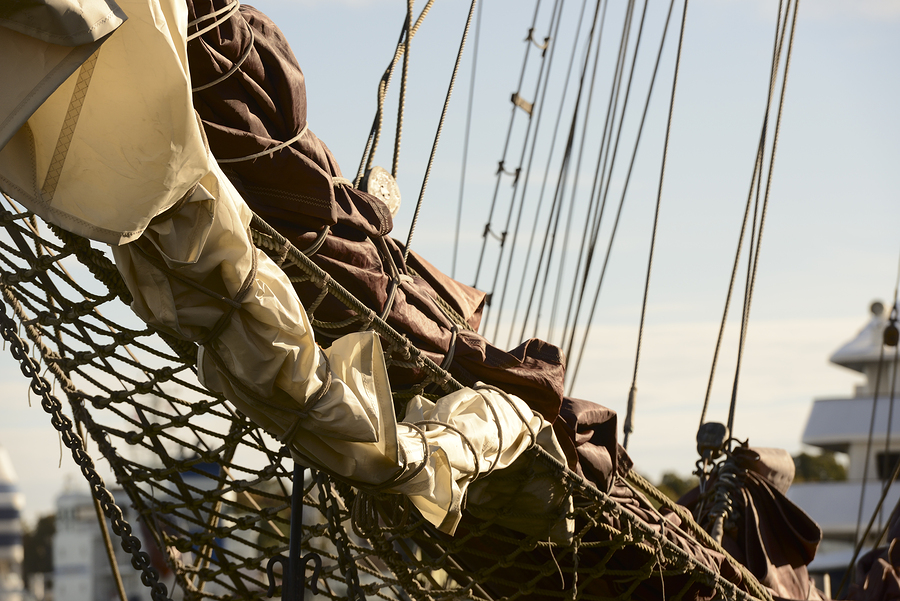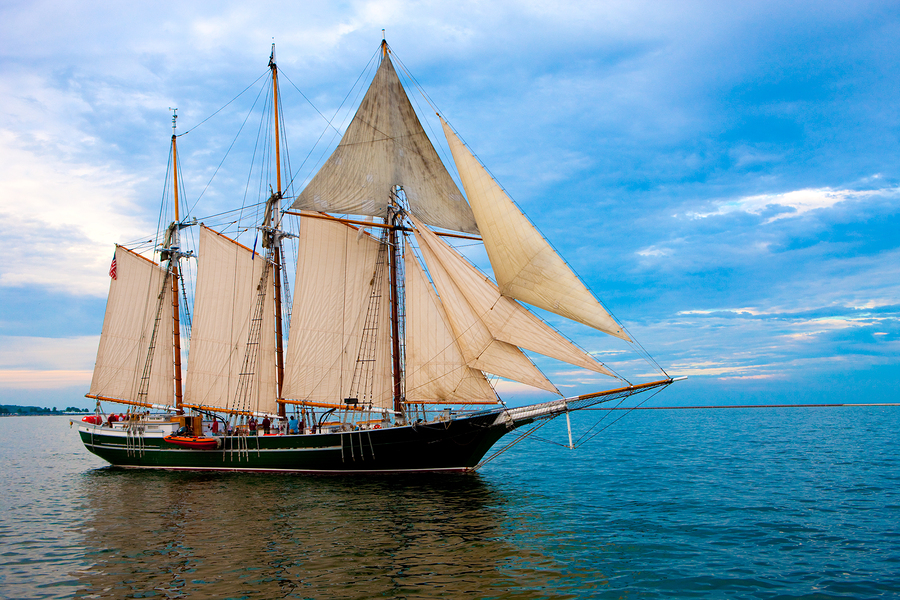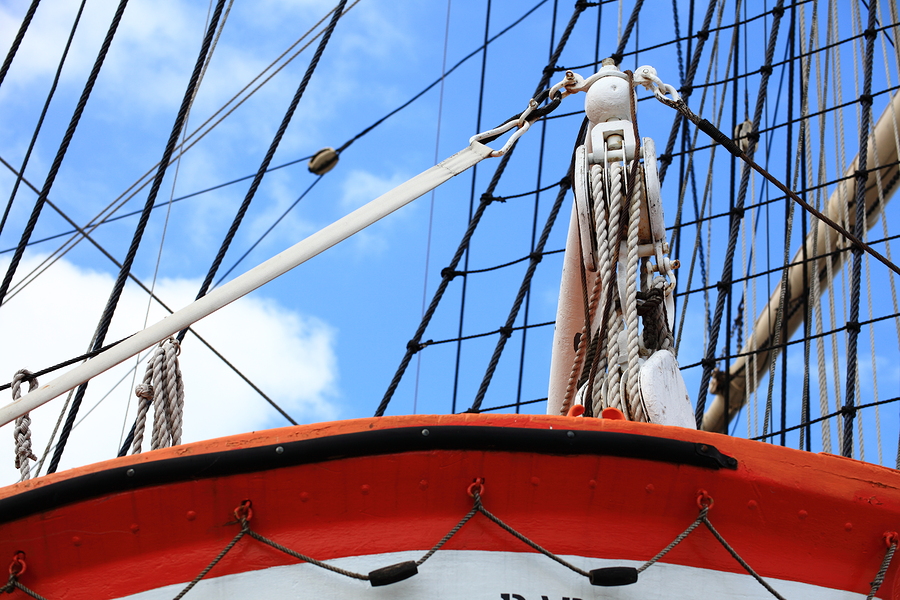Abraham Lincoln of the Sea
The Abraham Lincoln of the Sea

Andrew Furuseth died before I was born, and I’d never heard his name before I set out to write So Many Partings. Yet I came to love and admire the man and to my astonishment I was asked, because of So Many Partings, to give a keynote address about him to the Men of the International Seaman’s Union he had helped to found.
Novel writing can do that kind of magic… leading you by the hand, as if the story you believe you are creating has a life of its own and an agenda it wants you to fulfill.
Furuseth is not the hero of my story, but he taught my characters to fight with desperate bravery and integrity. Most of all, he taught them never to give up on fighting injustice.
Here’s how I found him and got the chance to add his story to SO MANY PARTINGS. Although he’s just a minor player in my saga, I learned to love him.
Heroic and All-but Forgotten
So Many Partings was on-the-job training for me as a novelist. I had a full-time job running my agency, a full-time family with a husband and two young daughters, and a dream of becoming an author.
So, I re-invented life to accommodate all of the above by getting up at 4:00 a.m. when no one else wanted my attentions… writing til 6:30… rousing my daughters and getting them ready for school… going to work as usual but using lunchtime and any after-work hours I could steal, to do research.
New York Waterfront, Circa 1890
You c an imagine how little I knew about the New York Waterfront when I began, so it was quite a wild and woolly learning experience.
an imagine how little I knew about the New York Waterfront when I began, so it was quite a wild and woolly learning experience.
I’d been researching at the New York Historical Society and the 42nd Street Library of course, but I soon realized I’d need to connect to the gestalt of the docks and the men who worked the water.
I’d need to talk to the old-timers who remembered the bad old days and had heard terrible tales of the even worse times when immigrants, desperate for work of any kind, crowded the docks each day hoping to be chosen for any labor, that could stave off starvation.
The Irish and the Italians were fighting for control of New York’s maritime world – The Sicilian Black Hand, the Pinkertons hired by the robber barons who controlled it all, and Boss Tweed’s hired muscle, all made the waterfront a fearsome place to be, in the time I was chronicling.
It was on the docks that I first heard of Andrew Furuseth, a heroic giant with a heart of gold and a backbone of Damascus steel.
Day Labor
In the 1880s and 90s, day labor of any kind was brutal and jobs were hard to come by. “No Irish Need Apply,” signs shut my Irish ancestors out of most employment, however the sea and the docks were a place where the brawniest could hope to be picked out of a crowd at the daily “shape up.” The Irish laborers tended to be large and strong and they were desperate enough to work for almost nothing.
be picked out of a crowd at the daily “shape up.” The Irish laborers tended to be large and strong and they were desperate enough to work for almost nothing.
The hero of my story is Tom Dalton, an Irish immigrant who worked the docks.
There he (and I!) met Furuseth, a man who, while a minor player in my tale, was a major player in the history of the sea.
Andrew Furuseth
Furuseth was a humble yet educated Norwegian immigrant. He’d gone to work for a farmer at age 8, and the farmer, recognizing his intelligence, sent the boy to a private Lutheran School.
He went to sea at 19, where he witnessed the horrors the men endured there. Sailors could be beaten, chained, keel hauled, denied food and water if the ship’s mate so chose. They could be killed for fighting back or complaining about living conditions that were deplorable and unregulated – those who protested were likely to never make port.
Shanghaiing
“Shanghaiing,” or the kidnapping of men from the squalid boarding houses where they lived, was common practice. Thugs, often in collusion with the boarding house owners, would drug or beat a man unconscious, then sell him to a ship’s mate. Forging his name to a document that amounted to slavery meant that the thugs could pocket the man’s pay for the grueling sea voyage he would endure.
Andrew vowed to find a way to create laws that would protect seaman from such brutality.
The Fight for Unions
At extraordinary risk to himself, Furuseth fought for the rights of seamen. He organized workers and helped them to unionize. He helped create the Maritime Unions and merged them into bigger and bigger unions, until the National Union of Seamen of America and The Internat ional Seaman’s Union became powerful enough to fight the owners and win. He is credited with writing what became The Seaman’s Act of 1915, hailed by many as the Magna Carta of the Seas.
ional Seaman’s Union became powerful enough to fight the owners and win. He is credited with writing what became The Seaman’s Act of 1915, hailed by many as the Magna Carta of the Seas.
When Furuseth died in 1938, his body was placed in state at the Department of Labor. He was the first labor leader ever honored in this way.
Research Now
As a writer, there’s much to be grateful for about the ease computers bring to certain elements of research, these days. But nothing replaces the visceral learning of chasing your story to its source… of standing on a freezing pier and imagining what turn of the century life must have been like for suffering seamen and longshoremen alike.
Villains and Heroes
Desperate to survive and to feed their families, exploited by moguls like JP Morgan who had overflowing bank accounts and, as the Irish said,’ hearts so small you could strap them to a sparrow’s knee.’
With zero compassion for the men who made the ir fortunes for them, these moguls hired Pinkertons to maim or kill any who fought them or who attempted to unionize.
ir fortunes for them, these moguls hired Pinkertons to maim or kill any who fought them or who attempted to unionize.
It seemed to me a great privilege to be able to add such a story to the fictional tale I’d conjured of love and betrayal and the passions of a handsome young Irish immigrant in an unrelenting time.
Ever since, in each of my historical stories, I’ve tried to include the story of at least one real person from history, and I’ve tried to bring their lives to the attention of a new generation.
Better late than never.